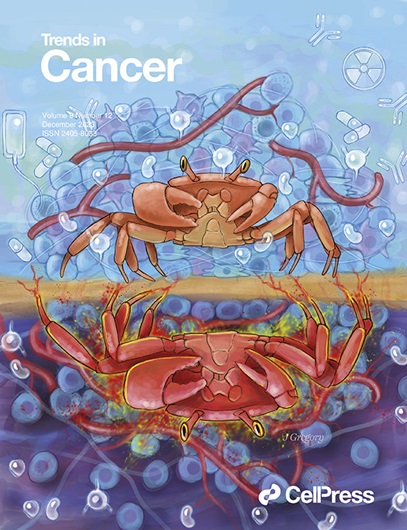骨食欲:骨源性因子喂养远处免疫抑制。
IF 17.5
1区 医学
Q1 ONCOLOGY
引用次数: 0
摘要
转移性疾病的部位影响治疗效果。Cheng等人最近在《Cancer Cell》杂志上发表的一项研究表明,骨转移会系统性地损害免疫功能,取消免疫治疗反应。骨转移导致骨桥蛋白(OPN)的产生,从而抑制远端病变的免疫。这突出了一种阻碍抗肿瘤免疫的新的跨器官通讯。本文章由计算机程序翻译,如有差异,请以英文原文为准。
Bone appetite: bone-derived factors feed distant immune suppression.
The site of metastatic disease influences treatment response. A recent study in Cancer Cell by Cheng et al. revealed that bone metastases systemically impair immune function, abrogating immunotherapy response. Bone metastases led to osteopontin (OPN) production, which suppressed immunity in distal lesions. This highlights a novel cross-organ communication hindering antitumor immunity.
求助全文
通过发布文献求助,成功后即可免费获取论文全文。
去求助
来源期刊

Trends in cancer
Medicine-Oncology
CiteScore
28.50
自引率
0.50%
发文量
138
期刊介绍:
Trends in Cancer, a part of the Trends review journals, delivers concise and engaging expert commentary on key research topics and cutting-edge advances in cancer discovery and medicine.
Trends in Cancer serves as a unique platform for multidisciplinary information, fostering discussion and education for scientists, clinicians, policy makers, and patients & advocates.Covering various aspects, it presents opportunities, challenges, and impacts of basic, translational, and clinical findings, industry R&D, technology, innovation, ethics, and cancer policy and funding in an authoritative yet reader-friendly format.
 求助内容:
求助内容: 应助结果提醒方式:
应助结果提醒方式:


